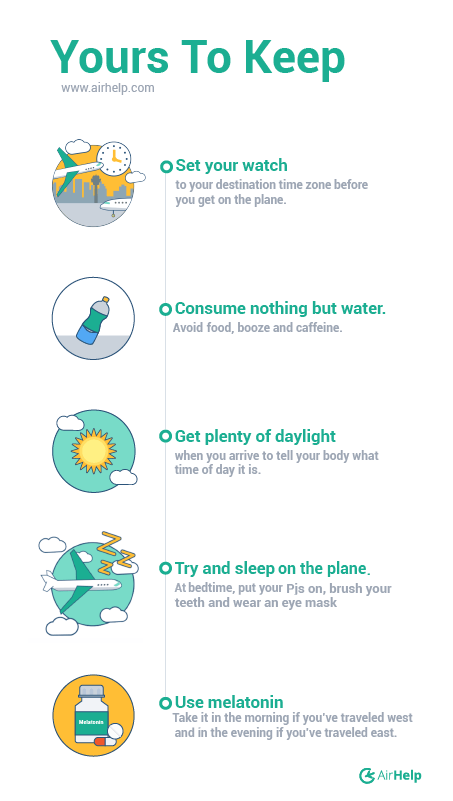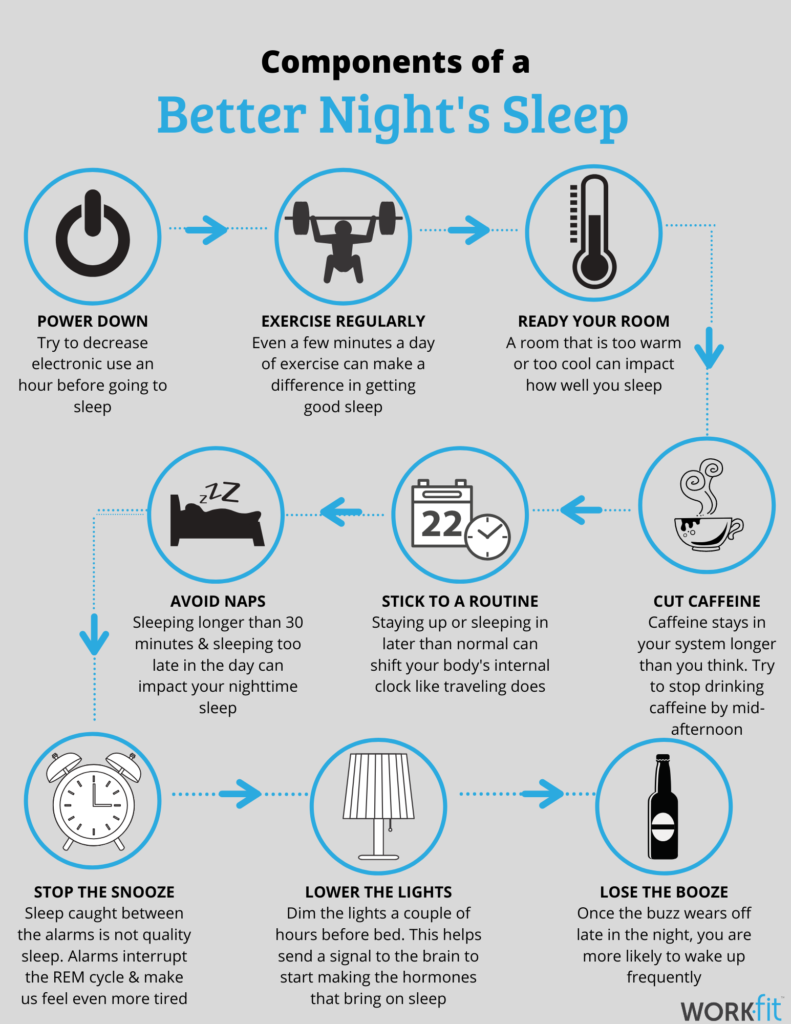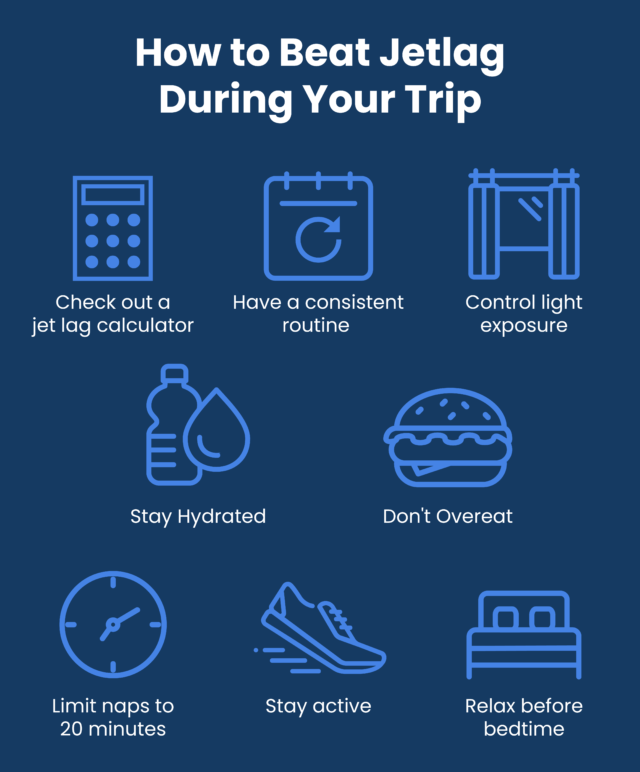In this article, we’ll be discussing the best tips to help you avoid jet lag. You’ll learn helpful strategies and techniques that can make a big difference in minimizing the effects of jet lag on your body and adjusting to a new time zone more easily. From adjusting your sleep schedule to staying hydrated and taking advantage of natural light, these tips will help you feel more refreshed and energetic during your travels. So, let’s explore these practical tips together and make your next trip a jet lag-free experience!

This image is property of www.sleepscore.com.
Understanding Jet Lag
What is jet lag?
Jet lag is a temporary sleep disorder that occurs when you travel across different time zones, disrupting your natural body clock or circadian rhythm. It commonly occurs when traveling long distances, such as on international flights, where the time difference between your departure and arrival destinations is significant. Jet lag can affect your sleep patterns, digestion, mood, and overall well-being.
Causes of jet lag
Jet lag is mainly caused by the rapid change in time zones, which disrupts your body’s internal clock. Your circadian rhythm is regulated by exposure to light and dark, and sudden changes in time zones can confuse the brain and disrupt the natural sleep-wake cycle. Other factors that can contribute to jet lag include dehydration, cabin pressure, air quality, and psychological factors such as stress and anxiety.
Effects of jet lag
Jet lag can have various effects on your body and mind. The most common symptoms include fatigue, insomnia, difficulty concentrating, irritability, digestive issues, and general malaise. These symptoms can last for a few days to a week, depending on the individual and the length of travel. Understanding how to manage jet lag can help minimize its impact and allow you to adjust more quickly to a new time zone.
Preparation before the Flight
Adjusting sleep schedule
One of the best ways to prepare your body for a new time zone is to gradually adjust your sleep schedule a few days before your travel. If you are traveling east, try going to bed and waking up earlier than usual. If you are traveling west, try going to bed and waking up later. This gradual adjustment can help your body adapt to the new time zone more easily.
Hydrating the body
Staying hydrated is crucial before, during, and after your flight. Dehydration can exacerbate the symptoms of jet lag and make you feel even more fatigued. It is recommended to drink plenty of water in the days leading up to your flight and to continue drinking water during the flight. Avoid excessive consumption of alcohol and caffeine, as they can contribute to dehydration and disrupt your sleep patterns.
Avoiding alcohol and caffeine
Alcohol and caffeine can have a negative impact on your sleep quality and contribute to jet lag symptoms. While it may be tempting to have a glass of wine or a cup of coffee onboard, it is best to avoid them, especially close to bedtime. Instead, opt for herbal tea or water to stay hydrated without interfering with your sleep.

This image is property of static.airhelp.com.
In-Flight Strategies
Stay hydrated
During the flight, it is important to continue drinking water to stay hydrated. The low humidity and cabin pressure can cause dehydration, which can worsen the symptoms of jet lag. Aim to drink at least 8 ounces of water every hour and avoid alcoholic beverages or excessive caffeine consumption.
Stretch and move around
Sitting for long periods can cause muscle stiffness and make you feel more fatigued. Combat the effects of sitting by stretching and moving around regularly during the flight. Take short walks up and down the aisle, do simple exercises like leg stretches, and move your neck and shoulders to improve blood circulation and prevent stiffness.
Minimize exposure to artificial light
The artificial light emitted by the cabin can interfere with your body’s natural sleep-wake cycle. To minimize the impact of artificial light, consider wearing an eye mask or using a sleep aid app on your phone to create a darker sleeping environment. This can help signal to your body that it is time to rest and aid in adjusting to the new time zone.
Managing Time Differences
Gradual adjustment to local time
When you arrive at your destination, it is helpful to adjust to the local time as soon as possible. Stay awake during daylight hours and try to sleep during the night when it’s dark. This gradual adjustment will help your body synchronize with the new time zone and minimize the effects of jet lag.
Using the 2-3-4 rule
The 2-3-4 rule is a strategy recommended by sleep experts to help minimize the effects of jet lag. On the first day at your destination, try to stay awake for at least 2 hours after arrival, then take a nap for 3 hours, and finally, sleep for 4 hours during the night. This rule helps your body gradually adjust to the new time zone without feeling too fatigued or restless.
Taking short naps
If you feel the need to take a nap during the day, keep it short and avoid napping too close to bedtime. Limit your naps to around 20-30 minutes to prevent them from interfering with your nighttime sleep. Taking short power naps can help you recharge and combat any fatigue caused by jet lag.

This image is property of uploads-ssl.webflow.com.
Nutrition and Meal Timing
Eating lighter meals
Heavy meals can make you feel lethargic and interfere with your sleep quality. When traveling, opt for lighter meals that are easy to digest. Include fruits, vegetables, lean proteins, and whole grains in your diet to provide essential nutrients and avoid feeling overly full or bloated.
Following local meal times
It is important to adjust your meal times to align with the local time at your destination. Eating meals at regular intervals can help regulate your body’s internal clock and aid in adjusting to the new time zone. If possible, try to have your meals at the same time as the locals to synchronize your eating patterns.
Avoiding heavy or spicy foods
Certain foods, such as heavy or spicy meals, can disrupt your sleep and digestion. These types of foods can cause indigestion, acid reflux, and discomfort, making it harder for you to sleep soundly. Stick to lighter and more easily digestible foods to prevent any discomfort during your journey and to promote better sleep.
Exposure to Natural Light
Maximizing exposure to daylight
Exposure to natural light is crucial for regulating your circadian rhythm. Spend time outdoors during daylight hours to signal to your body that it’s daytime and time to be awake. Take a walk, sit by a window, or have a meal outside to maximize your exposure to natural light and help reset your internal clock.
Avoiding excessive screen time
Excessive screen time before bedtime can interfere with your sleep quality and make it harder for you to adjust to a new time zone. The blue light emitted by electronic devices can suppress the production of melatonin, a hormone that regulates sleep. Limit your screen time, especially before bed, to promote better sleep and aid in adjusting to the new time zone.
Using sunglasses
Wearing sunglasses can help reduce exposure to bright light, especially if you are traveling to a destination with significant time zone differences. By wearing sunglasses, you can minimize the impact of bright sunlight on your eyes and create a more comfortable environment for your body to adjust to the new time zone.

This image is property of i.dailymail.co.uk.
Staying Active and Exercising
Engaging in physical activity
Physical activity can help reduce the symptoms of jet lag and boost your energy levels. Engage in light exercises, such as walking, jogging, or stretching, to get your blood flowing and increase oxygenation to your muscles. If possible, find a local park or gym to exercise and explore your new surroundings.
Yoga or stretching routines
Yoga or stretching routines can help relieve muscle tension and promote relaxation. Take a few minutes each day to do simple yoga poses or stretch your body to improve flexibility and release any accumulated stress or tension. Practicing relaxation techniques can also help you unwind and prepare your body for a good night’s sleep.
Avoiding sedentary behavior
Avoid sitting or lying down for extended periods, as it can make you feel more fatigued and sluggish. Instead, try to stay active and avoid long periods of inactivity. Get up and move around regularly, even if it’s just a brief walk around the cabin, to prevent immobility and keep your blood flowing.
Avoiding Sleeping Pills
Natural sleep aids
If you are struggling to sleep due to the effects of jet lag, consider using natural sleep aids such as lavender essential oil, chamomile tea, or relaxing herbal supplements. These natural remedies can help promote relaxation and improve sleep quality without the potentially harmful side effects of sleeping pills.
Melatonin supplements
Melatonin is a hormone naturally produced by the body to regulate sleep-wake cycles. Taking melatonin supplements can help adjust your body’s internal clock and promote better sleep during the adjustment period. It is recommended to consult with a healthcare professional before taking melatonin to determine the appropriate dosage and timing.
Seeking medical advice
If the symptoms of jet lag persist or significantly affect your well-being, it is advisable to seek medical advice. A healthcare professional can provide personalized recommendations or prescribe medication to alleviate the symptoms of jet lag. They may also rule out any underlying health conditions that could be exacerbating your symptoms.

This image is property of blog.turkishairlines.com.
Managing Jet Lag in Children
Gradual adjustment to new time zone
Children, especially younger ones, may have a harder time adjusting to a new time zone. It is essential to gradually adjust their sleep schedule a few days before the trip, just as you would for yourself. Encourage them to follow regular meal times and engage in outdoor activities during daylight hours to help synchronize their internal clock with the new time zone.
Encouraging regular sleep patterns
Maintaining regular sleep patterns can support children in adjusting to a new time zone. Encourage them to follow their usual bedtime routine and create a calm and familiar sleep environment. Keeping their sleeping schedule consistent can help minimize the effects of jet lag and promote better sleep quality.
Creating a familiar sleep environment
When traveling with children, try to recreate a familiar sleep environment to make them feel more secure and comfortable. Bring their favorite pillow, blanket, or stuffed animal, and try to mimic their bedroom setup as much as possible. This familiarity can help reassure them and promote better sleep during the adjustment period.
Conclusion
Jet lag is an inevitable part of long-distance travel, but with proper preparation and strategies, its impact can be minimized. Adjusting your sleep schedule before the flight, staying hydrated, and avoiding alcohol and caffeine can help prepare your body for the journey. In-flight strategies such as staying hydrated, moving around, and minimizing exposure to artificial light can aid in managing the symptoms of jet lag. Managing time differences by gradually adjusting to the local time, following the 2-3-4 rule, and taking short naps can facilitate a smoother transition. Considering nutrition and meal timing, exposure to natural light, staying active, and avoiding sleeping pills can also contribute to minimizing the effects of jet lag. Lastly, when traveling with children, applying similar strategies and creating a familiar sleep environment can help them adjust more smoothly. By following these best tips, you can enhance your travel experience and make the most out of your time in a new destination. Safe travels!










